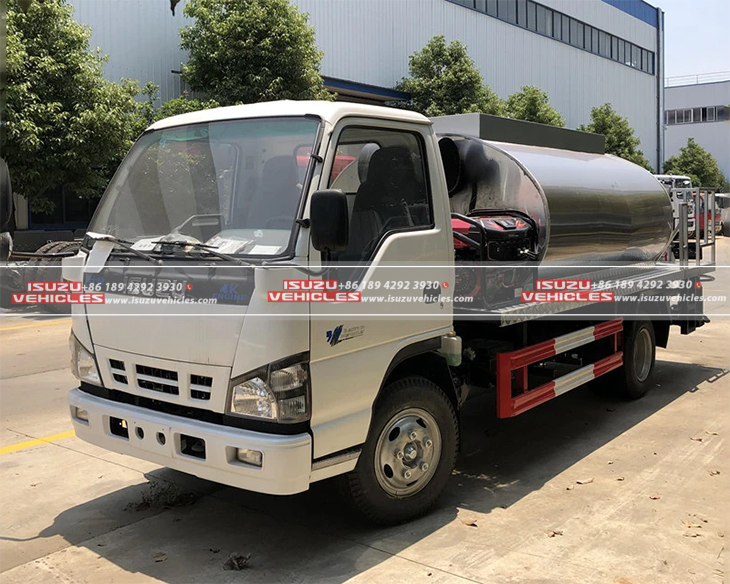Peru’s infrastructure development has gained new momentum with the delivery of the advanced ISUZU asphalt distributor truck, a specialized vehicle designed to enhance the quality and efficiency of road construction projects nationwide. This strategic addition to Peru’s construction fleet represents a significant upgrade in pavement laying technology, combining ISUZU’s renowned reliability with precision asphalt application systems. The vehicle’s deployment comes at a critical time as Peru accelerates its national road network improvement program, particularly in mountainous regions where durable pavement solutions are essential.
1. Cutting-Edge Asphalt Application Technology for Superior Road Quality
The newly arrived ISUZU asphalt distributor truck features an integrated system engineered to deliver exact asphalt application rates and temperatures, crucial for achieving long-lasting road surfaces. Built on ISUZU’s heavy-duty FVR chassis platform, the vehicle maintains exceptional stability while operating on steep gradients and uneven terrain common in Peru’s diverse topography.
Precision Asphalt Spray System
The truck’s computer-controlled spray bar enables adjustable application widths from 2 to 6 meters, with flow rates adjustable from 0.2 to 3.5 liters per square meter. A thermal oil heating system maintains optimal asphalt viscosity throughout extended work shifts, while the insulated 8,000-liter tank ensures minimal temperature loss during transport to job sites. The integrated infrared temperature sensors provide real-time monitoring to guarantee proper pavement bonding conditions.
Enhanced Operational Efficiency
Powered by ISUZU’s 6UZ1-TCG turbocharged diesel engine producing 260 horsepower, the distributor truck delivers reliable performance at high altitudes where Peru’s many road projects are located. The automatic transmission and all-wheel braking system ensure precise speed control during spraying operations, critical for achieving uniform application rates. The vehicle’s ergonomic control cabin features touchscreen operation and automated sequence programming, reducing operator fatigue during complex paving projects.
Safety and Environmental Considerations
The asphalt distributor incorporates advanced emission control systems meeting Peru’s evolving environmental regulations, including particulate filters and exhaust gas recirculation. Safety features such as anti-slip work platforms, 360-degree camera monitoring, and automatic emergency shutoff systems protect crews during hot asphalt operations. The vehicle’s spill containment system prevents environmental contamination during refueling and maintenance procedures.
2. Strengthening Peru’s Road Construction Equipment Fleet
The ISUZU asphalt distributor truck joins an expanding roster of specialized construction vehicles supporting Peru’s infrastructure growth, complementing existing assets like the rugged ISUZU dump truck for aggregate transport and the versatile ISUZU construction sweeper truck for site maintenance. Government transportation officials have highlighted how this addition will improve the quality and pace of road rehabilitation projects, particularly in the Andean regions where weather extremes demand durable pavement solutions.
Construction contractors have particularly noted the distributor’s low maintenance requirements and operator-friendly design, which significantly reduce downtime compared to older equipment. The vehicle’s compatibility with various asphalt mixes makes it ideal for Peru’s diverse climate zones, from coastal highways to high-altitude mountain passes. With its ability to precisely apply both conventional and modified asphalt binders, the ISUZU distributor is expected to play a key role in Peru’s efforts to implement longer-lasting pavement technologies.
As Peru continues investing in transportation infrastructure to support economic growth, the ISUZU asphalt distributor truck represents a strategic acquisition that bridges the gap between traditional construction methods and modern pavement engineering requirements. Its deployment demonstrates how specialized equipment can simultaneously enhance project quality, worker safety, and environmental compliance in large-scale infrastructure development.
